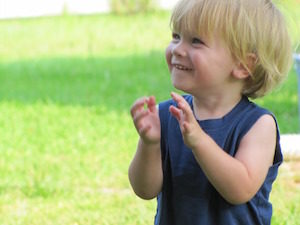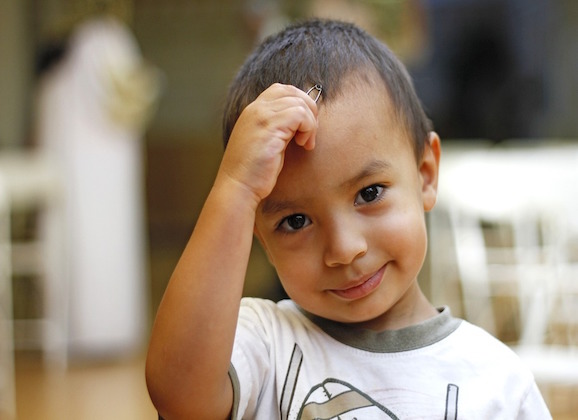 The term “goodness of fit” is defined as the notion that development is dependent on the degree of match between children’s temperament and the nature and demands of the environment in which they’ve been raised. As a child development specialist, I believe that the concept of “goodness of fit” is very important, and crucial to the bond between a parent and their child.
The term “goodness of fit” is defined as the notion that development is dependent on the degree of match between children’s temperament and the nature and demands of the environment in which they’ve been raised. As a child development specialist, I believe that the concept of “goodness of fit” is very important, and crucial to the bond between a parent and their child.
According to The New York Longitudinal Study (Thomas & Chess, 1980) the profiles state that there are three distinct temperaments.
The first type of temperament is termed as “easy babies.” According to Thomas and Chess, easy babies have a positive disposition, their body functions operate regularly and they are adaptable. They seem to be extremely positive and show curiosity about new situations. Their emotions are moderate or low in intensity. Approximately 40 percent of infants are born with an easy going temperament. Every parent would like to put a wish order in for these types of babies.
The second type of temperament described by Thomas and Chess are “difficult babies.” They have more negative moods and are slow to adapt to new situations. When they are confronted with a new experience they tend to withdraw. About 10 percent of infants may be categorized in this area of temperament. This may be a very difficult transition for a parent who is coping with a difficult baby. Parents may be dealing with behavioral or oppositional defiant behavior if a child may be extremely strong willed or intense. These parents may need tools or counseling to guide this type of temperamental child.
The third type of temperament is called “slow-to-warm babies.” According to the research of Thomas and Chess, these infants appear to be inactive. They show relatively calm reaction to their environment, but their moods can possibly be negative and they may withdraw from a new situation. Approximately 15 percent of American babies are slow to warm. We would refer to these babies as inherently shy. We as parents may have to help each baby or child by staying with them, calming them down, and guiding them in a new transition.
As for the remaining types of temperamental babies they may be characterized as a combination. Cultural differences may have a major influence on the relationship between caregiver and child. For instance, if a mother was from the African culture and her baby was fussy and cried often, she might provide nourishment and breast feed the baby more often when irritable. Inherited traits that are considered a biological basis of temperament can make up the core of our personality and play a future role in our development. For example, a baby born “inherently shy” might turn into a shy adult that still shows traits of “slow-to-warm temperament.”
Gender plays a powerful role in the way we treat girls and boys in our society. Parents play with boys and girls in a different fashion. Mothers and fathers may respond to their babies differently (Lamflamme, Pomerleau, & Malcuit, 2002; Clearfield & Nelson, 2006; Parke, 2007). For instance, fathers may do more physical, rough and tumble activities while mothers play more traditional games such as peek-a-boo with their infants. The types of toys, the way we dress our children, the colors of the blankets, and the designs of a baby’s nursery also contributes to the gender conditioning we put on our children (Bridges, 1993; Coltrane &adams, 1997; Serbin et al., 2001).
 The way a parent reacts to their child’s temperament can create a healthy or unhealthy relationship throughout our child’s development. We might have preferred a specific gender in order to relate to a male or female perspective. This could create an ambivalent attachment to our child. We often relate to our child if they have similar characteristics, interests and abilities as we do, and parent them accordingly. However, if we do not relate to a baby or child who has a difficult temperament this may create an unhealthy relationship.
The way a parent reacts to their child’s temperament can create a healthy or unhealthy relationship throughout our child’s development. We might have preferred a specific gender in order to relate to a male or female perspective. This could create an ambivalent attachment to our child. We often relate to our child if they have similar characteristics, interests and abilities as we do, and parent them accordingly. However, if we do not relate to a baby or child who has a difficult temperament this may create an unhealthy relationship.
“Goodness of fit” is critical, so as a parent we must strive to love our children in an unconditional manner regardless of how their temperament or gender may affect us. We may need new tools, strategies, parenting classes, or counseling to help us on this journey in order to relate to our children.

















